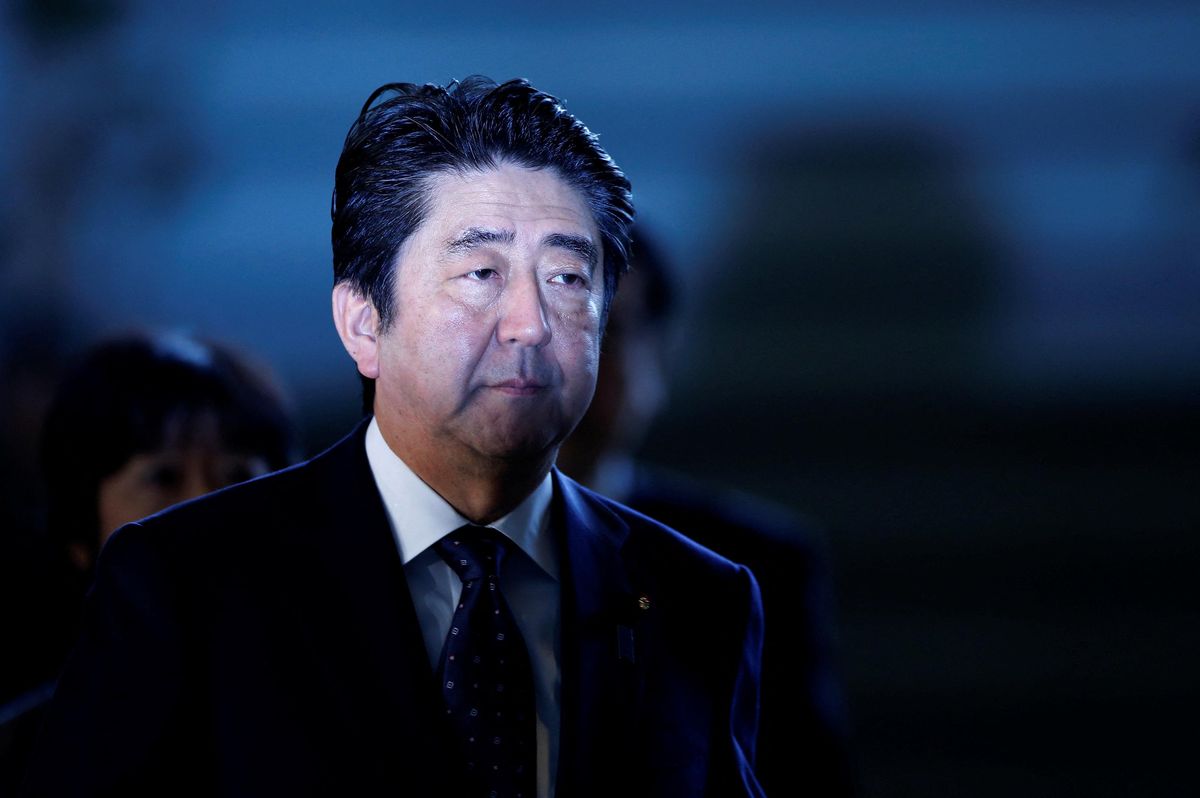In the wake of Shinzo Abe’s shock assassination on Friday, Japan’s ruling Liberal Democratic Party — which the former PM was campaigning for till he drew his last breath — swept the upper house elections on Sunday, giving the LDP and its allies the projected two-thirds majority required in parliament to amend the country’s postwar pacifist constitution, a yet unfulfilled dream of the slain leader.
Why is amending the constitution such a big deal for Japan? The current US-drafted charter, which came into effect in 1947, maintains that Japan cannot have a conventional military — one that can attack, even preemptively, in case of war. Tokyo does command a de-facto military, the Self-Defense Forces, but its actions are limited.
An amendment would change the fundamentals of the security calculus in East Asia, as the world’s third-largest economy moves from pacifist self-defense toward an active military that can be deployed abroad.
A national security election. Due to the very anti-war nature of the constitution, conflict and security have never really been a campaign issue for Japanese voters. Not anymore.
Recent polling suggests that almost two-thirds of the population want Tokyo to beef up Japan’s defense. The LDP has proposed doubling the defense budget to 2% of the GDP within five years, which Abe had been the leading advocate for.
While rising inflation and a depreciating yen are more immediate priorities for current PM Fumio Kishida, Abe’s former top diplomat, the political momentum for a hawkish turn on security has developed on a parallel track throughout the last decade, mostly under Abe.
“A shift is underway in public opinion on defense post-Ukraine. The public does seem concerned that the world is increasingly dangerous, and alarmed that Japan is unprepared for it,” says Tobias Harris, author of The Iconoclast: Shinzo Abe and the New Japan and a senior fellow at the Center for American Progress. ”The consensus in favor of higher defense certainly seems durable.”
Still, he warns that the case for high defense spending could become less robust as Japan heads into a fierce budget debate for the next fiscal year.
Will this make Japan less pacifist? Yes, but the trend started long before Abe was assassinated.
“Japan is already well on the way to leaving its pacifist past behind, and Abe's murder will strengthen that tendency,” says Liselotte Odgaard, a professor at the Norwegian Institute for Defense Studies and a senior fellow at the Hudson Institute.
Indeed, throughout the last decade, largely thanks to Abe, Tokyo had been taking purposeful steps to strengthen its security, according to Eurasia Group analyst David Boling.
“The Ukraine crisis has increased the sense of urgency,” Boling explains. “This trend will only continue given threats from China, North Korea, and now Russia.”
Consider the latest security developments in the region, and you can see where the Japanese are headed.
The North Koreans are on a testing and weapons development spree. Beijing’s claims over Taiwan — and smaller Japan-controlled islands in the region — are only getting louder. Since invading Ukraine, Russia has increased its military activity near Japan, sending warships near Tokyo-controlled territory last week. What’s more, the Russians have also been running joint air drills with the Chinese, and last year both navies seemed to be encircling Japan.
Tokyo has registered the usual diplomatic protests, but now, in a post-Abe Japan, gears are shifting.
Will there be any immediate backlash? “If Japan quickly moves to amend its constitution, that action would further worsen relations with China and potentially unnerve other neighbors, like South Korea,” says Boling.
But even if Japan were to dramatically increase spending and acquire attack capabilities, Harris believes the regional response will be muted “because Japan will be joining a regional arms race already in progress, playing catch-up to neighbors, who are already spending more and upgrading their capabilities.”
Still, fast-tracking constitutional change won’t be easy. Besides the LDP, its smaller allies — Komeito, Nippon Ishin, and the opposition Democratic Party for the People — are in favor of reforming the charter but through different methods. Not to mention that the government’s more urgent problem is taming inflation.
There’s tradition, too — a big deal in convention-bound Japan. Kishida might be unwilling to break the informal rule that says the constitutional revision process should receive the consent of all parties to begin, whether or not they all support the amendments. “I don’t see that changing after the election,” says Harris.



















